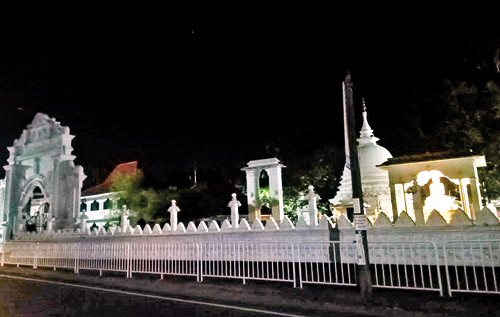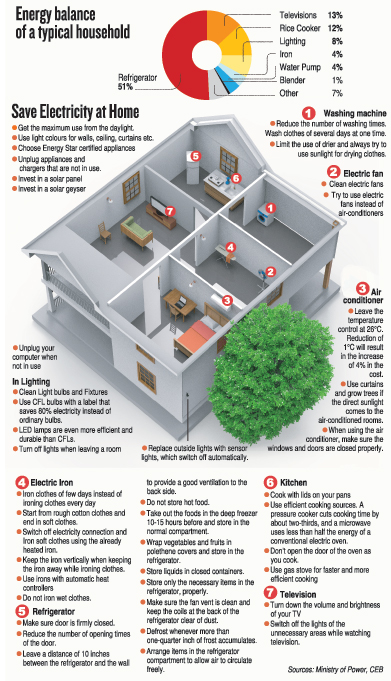News
Low-tier power users facing shocks ask where are solar units?

The Govt. had promised rooftop solar for religious places and Government educational institutions, but nothing has materialised
Electricity charges revised for a second time are expected to once again drive prices of consumer goods and services ever higher, burdening millions of families who fall into the 0-30 units user category.
Traders and services providers are now expected to pass on rising costs of electricity to consumers.
Electricity tariffs were raised in August 2022 and then again on February 16 in line with commitments to the IMF for a loan facility and amid plans to unbundle the Ceylon Electricity Board. This gave rise to widespread anger and protests by domestic users and thousands of religious institutions.
President Ranil Wickremesinghe had in August promised concessions for low-income families and rooftop solar for religious places and Government educational institutions. Power and Energy Minister Kanchana Wijesekera also said so in September. But, this has not been delivered. There are no funds although Mr Wijesekera noted in January a US$100 million Indian credit line.
A rooftop solar unit costs upwards of Rs 1 million.
Principals’ Union president, Mohan Parakrama Weerasinghe said that the quality of education would decline as school authorities would only be able to pay electricity and water bills from school development funds. The union is discussing with other trade unions of state professionals to consider joint action to express their displeasure and demand concessions.
Parents complain that they have to pay for school development societies and tuition, in addition to their own electricity bills.
Private hospitals and nursing homes said they have no other option but to transfer higher electricity costs to patients.
The president of Private Hospitals and Nursing homes Association Dr Ananda Kuruppuarachchi said costs will rise at hospitals that operate 24 hours and at nursing homes. “Costs are high already. Private hospitals are bearing some costs and increasing some of the charges, because patients would be unable to afford private medication.’’
The Government Medical Laboratory Technologists head, Ravi Kumudesh said that health workers who earn a fixed salary can’t bear further increases. Salaries are stagnant.
 Trade union action will be taken against the Government, he said.
Trade union action will be taken against the Government, he said.
The tea industry, too, has been forced to increase product prices.
A manager of a tea factory in Ratnapura, R.P.K Balasuriya said that the electricity bill exceeded Rs 7 million to manufacture 250,000 kilos of tea. The latest increase will mean the business may have to shut.
Meanwhile, representatives of a cross-section of religious places said they will cut down on the use of electricity.
The chief incumbent of Kohilapokuna Raja Maha Vihara Kurunegala Indraratana Thera said he understands that the lay persons are financially stretched let alone contribute to temples and the monks’ dwelling (awasa ge) electricity costs amounts to Rs 15,000.
He said that the three monks and two children only use a few lights in their dwelling area at night.
Churches are also mindful of the additional costs.
Vicar General of Chilaw Diocese, Father Ashok Perera said that churches at Chilaw have been asked to use electricity sparingly.
Father Perera also noted how the Government had promised rooftop solar panels for churches, but this has not been done.
Mosques, too, are looking for ways to cut down electricity use.
The chairman of the Devatagaha mosque, Riyaad Salley said power saving electrical devices and LED lights are being used. “We anticipate a higher bill. We have minimise the use of electricity and have only the necessary lights.’’
He said that he will request solar panels from the Government.
Trustee of Sri Manikka Vinayagar temple in Bambalapitiya, Maniccavasagar said lighting has been reduced. “We pay the bills with the income from the temple. So far, we were able to manage the electricity bill.’’
The best way to say that you found the home of your dreams is by finding it on Hitad.lk. We have listings for apartments for sale or rent in Sri Lanka, no matter what locale you're looking for! Whether you live in Colombo, Galle, Kandy, Matara, Jaffna and more - we've got them all!

